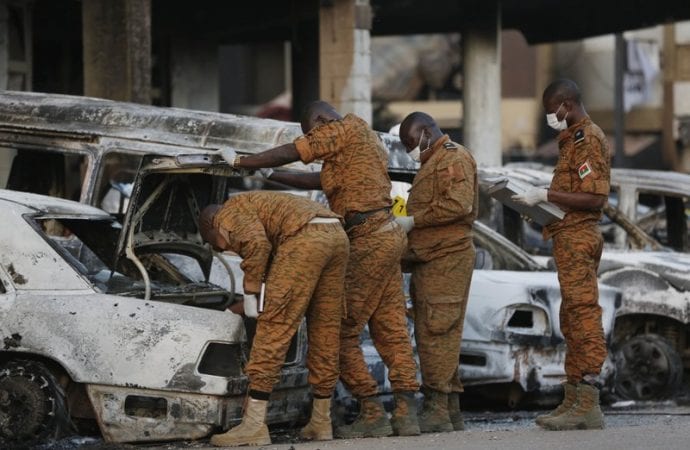The new president of the Episcopal Conference of Burkina Faso and Niger, Bishop Laurent Birfuoré Dabiré, has called on Christians to resort to prayer and charity as the only appropriate weapon against terrorism.
The Bishop of Dori to the northeast of Burkina Faso was speaking June 14 following his election at the end of the meeting of the two countries joint bishops’ conference. He replaces Archbishop Paul Ouédraogo of Bobo-Dioulasso.
“My tenure at the helm of the Bishops’ Conference of Burkina-Faso and Niger comes at a difficult time, characterized by attacks on and kidnapping of priests,” said Dabiré.
“The Christians’ weapons against terrorism are not Kalashnikovs, but prayer and charity,” the prelate said.
Both countries have seen their Christian minorities come under attack by Islamic extremists over the past few years, with attacks having intensified since last September.
Burkina Faso is 60 percent Muslim, with Christians making up about a quarter of the population. Niger is over 99 percent Muslim, with just 0.3 percent Christian.
On Sep. 17, 2018, Italian Father Pierluigi Maccalli was taken from his home in Bomoaga in Niger.
The member of the Society of African Missions had been serving in Niger for more than 10 years and, before that, in Ivory Coast.
Members of the order have told Fides, the news agency of the Congregation for the Evangelization of Peoples, that they believe Maccalli is still alive, but they do not know where he is.
On Feb. 15, Salesian Father César Antonio Fernandez was killed in Nohao, Burkina Fasso as he returned from Togo. On March 17, Father Joel Yougbaré was kidnapped in the Diocese of Dori, and his whereabouts are currently unknown.
On April 29, six Evangelical Christians were killed during an attack on an Assemblies of God church in Silgadji to the north of Burkina Faso.
On May 12, six Catholics were killed in Kaya Diocese during Mass. On May 26; armed men stormed the Toulfé Catholic Church in Loroum Province to the north of Burkina Faso, killing four people.
“The countries of our bishops’ conference, Burkina Faso and Niger, are prey to terrorist attacks,” said the bishops’ final communique.
“Despite the commitment of the defense and security forces, terrorist attacks are intensifying and have taken on a new religious dimension, through targeted kidnappings and homicides,” the statement continued.
The bishops expressed “profound sadness and dismay” in the face of acts of terrorism that not only have taken many lives but have also driven many from their homes.
They also condemned the tactics of the terrorists, “sowing fear and desolation among the population and to cause suspicion with the aim of sowing the seeds of inter-communal and inter-religious conflicts.”
According to the Edward Clancy of the pontifical charity Aid to the Church in Need, the militants are trying to convert Christians by force to Islam.
“Sometimes it is accompanied by a demand for jizya, a tax on non-Muslims, to allow Christians to buy peace and the ability to live and remain in their faith. But with or without the jizya, the goal of these extremists is to force Christians to convert or to leave,” he told Crux.
Bishop Théophile Nare of Kaya in Burkina Faso echoed this sentiment, saying the violence is meant to “eliminate Christian presence” in the region.
The bishops said they were worried that the continued attacks will lead to another crisis: Hunger.
With people forced from their homes and farmlands, and having abandoned all other means of production, the likelihood of an outbreak of famine now is growing.
In the face of these challenges, the bishops of the two countries have called on all “who love peace to remain united despite the resurgence of terrorist attacks; to cultivate the cohesion among the different components of our peoples to avoid falling into the traps of terrorists.”
The bishops further called on the peoples of the two countries to “intensify measures of prudence and vigilance at individual and community levels in a climate of faith and hope and to remain disciples and witnesses of the One who obtained his victory not with violence, but with love; in other words, to conquer evil with good.”

